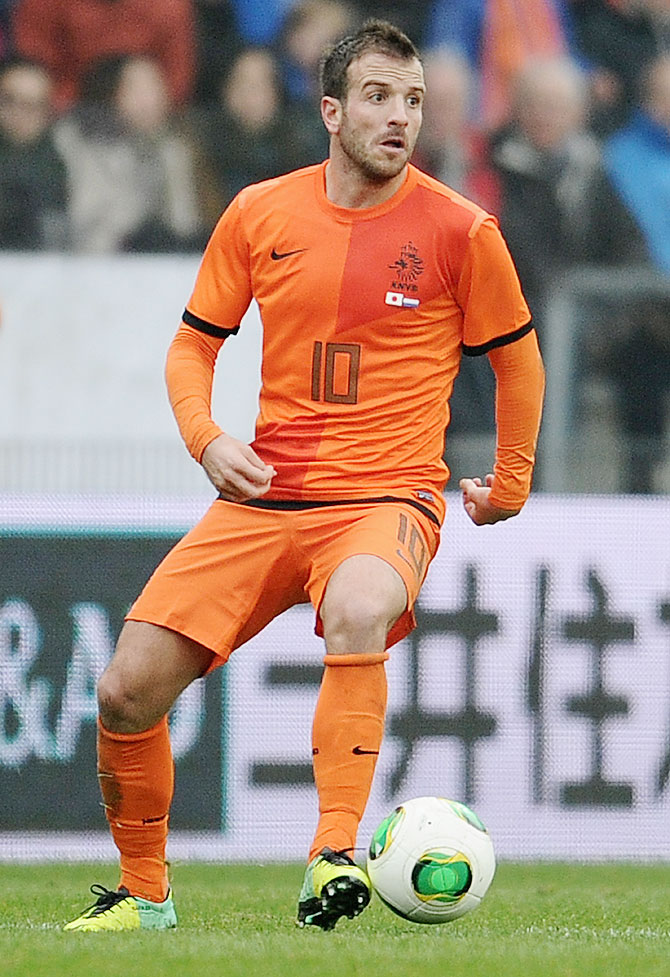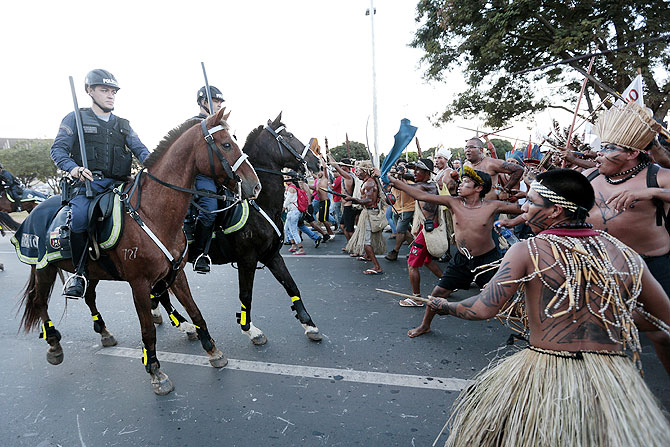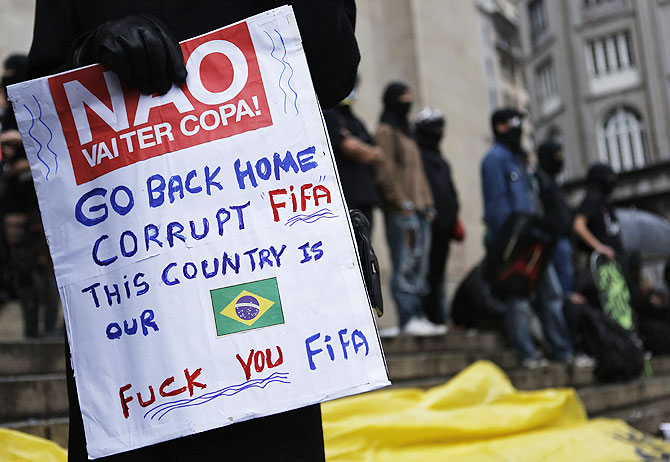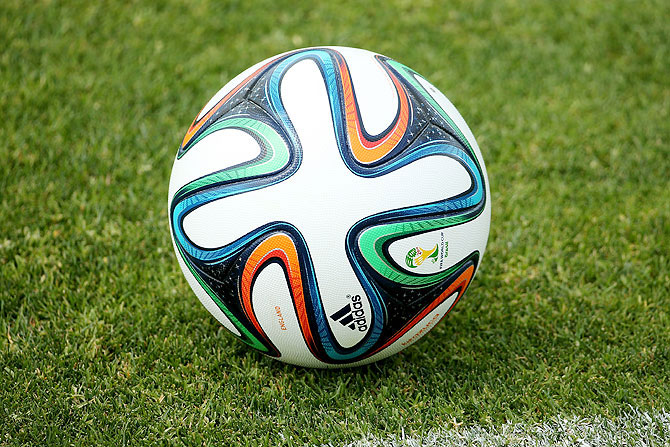
Netherlands midfielder Rafael van der Vaart has been ruled out of the World Cup. The experienced international picked up a calf injury at a training camp in Portugal, the Dutch football association KNVB confirmed on Wednesday.
Capped 109 times for his country, the 31-year-old Hamburg midfielder suffered the injury at a training camp for the Brazil tournament on Tuesday with KNVB saying he was not expected to recover in time to participate in the June 12-July 13 finals.
Van der Vaart sat out training on Monday because of a fever before conducting a individual session on Tuesday while the rest of his team mates were preparing to leave the Algarve at the end of the camp.
The former Ajax, Real Madrid and Tottenham Hotspur midfielder competed at the last two World Cup finals and was expected to a play a major role for the team in Brazil.
His injury means the Dutch have lost two key midfielders in the run-up to the tournament with Roma's Kevin Strootman ruled out in March through a serious knee injury.
Van der Vaart had struggled with the calf injury throughout the recently concluded Bundesliga season in which his club narrowly avoided relegation.
The Dutch are expected to name their final 23-man squad for Brazil on Saturday. They meet Spain in their opening Group B fixture on June 13, followed by games against Australia (June 18) and Chile (June 23).
- ...

Police fired tear gas canisters to contain anti-World Cup demonstrators who tried to march to the Brasilia stadium where the soccer tournament's trophy was on public display on Tuesday.
The protest by more than 1,000 people snarled rush hour traffic in the Brazilian capital adjacent to the Mané Garrincha National Stadium, the most costly stadium built for the 32-nation sports event that begins in 16 days.
Adding to the tension, Indians in traditional tribal dress with bows drawn joined the protesters from the Homeless Worker's movement. The group says building stadiums to host the World Cup was too costly, caused real estate prices to soar and forced lower-income families out of their homes.
Brazil is rushing to finish stadiums and urban transport systems in time for the World Cup in a climate of growing civil disobedience by groups of Brazilians who seek to disrupt the event saying its cost was excessive for a developing nation.
The World Cup now serves as a backdrop to push for variety of causes, and bus drivers in Rio de Janeiro said on Tuesday they would start a 24-hour strike at midnight while professors marched down Sao Paulo's main thruway to demand a raise.
- ...

Local soccer fans lined up outside the Brasilia stadium to see the FIFA World Cup Trophy, which is touring the 12 cities hosting the games, but the protest march forced authorities to cancel the trophy display and close the stadium.
The Brasilia protest follows a peaceful march led by the same group in Sao Paulo last week. That protest of several thousand held up traffic in South America's business hub and spurred fears that more protests and even violence could disrupt the month-long World Cup when it starts on June 12.
A spokesman for the military police said Tuesday's protest started peacefully and that police were trying to contain the march with tear gas and walls of shield-bearing police. But if the demonstrators reached the stadium, they would have to intervene, the spokesman said.
Brasilia's stadium will cost 1.9 billion reais ($849.26 million) when the surrounding landscaping is finished after the World Cup, city auditors said in a report published last week, almost three times the price tag first budgeted.
Though they have not previously joined anti-World Cup protests, Indians have routinely protested in Brasilia against efforts to change the rules around how Indian reservations boundaries are determined. They invaded Congress while it was in session on several occasions last year.
Brazil's President Dilma Rousseff has promised the Homeless Worker's movement that squatters who have gathered around some of the stadiums will receive low-cost government housing. But her government has warned that it will call in troops if necessary to prevent protests disrupting the soccer games.
Some 600,000 foreign soccer fans are expected to travel to Brazil for the World Cup.
- ...

A public prosecutor in central Brazil has accused the federal government of false advertising and has opened a civil suit to force it to suspend a publicity campaign that claims the country is ready to host next month's World Cup.
“The government campaign advertises that the tournament willbring great benefits to Brazilians through investments in urbaninfrastructure and public services,” a statement from the Goias state federal prosecutor’s office said.
“However, that is not the reality we are seeing.”
The true situation is one of “disorganisation, lack of planning, and incompetence in doing what was planned in terms of infrastructure and services,” the statement said.
The action seeks an injunction suspending the government campaign with possible fines of 5 million Brazilian reais ($2.23 million) a day if it fails to comply.
The Advocacia-Geral da Uniao, the federal government’s legaloffice, did not respond to a request for comment on the case.
Brazil is investing at least 28 billion reais on the World Cup but more is now being spent on the 12 stadiums than on public transportation.
While stadium costs have risen, many proposals to install metro lines, bus lanes and tram systems have been scaled back or shelved altogether.
The government’s publicity campaign calls the tournament the “Copa das Copas,” or World Cup to end all World Cups.
President Dilma Rousseff last month said “the stadiums are ready and the airports are ready” even though seats had still to be installed at three arenas and work was continuing at several airports.
Visitors to Fortaleza in the north of the country will be greeted at an airport terminal made of tarpaulin because the proposed building is so far behind schedule.
The World Cup kicks off in Sao Paulo on June 12 and runs until the final in Rio de Janeiro on July 13.
- ...

Brazil's goalkeeper Julio Cesar has backed the official World Cup football, playing down possible worries over the performance of the Adidas-made Brazuca.
“The ball is a good one, we had contact with it today,” the former Inter Milan and Queens Park Rangers player said of the Brazuca, which is a playfully slang word for native Brazilians.
“I think the outfield players are going to like it too,” he added.
His comments at Brazil’s training camp just outside Rio de Janeiro were in sharp contrast to four years ago when he and other players criticised the Jabulani ball, which was used in the South Africa World Cup.
That ball, he said, was too light and moved about in the air. It was “terrible, horrible, like a ball you buy in the supermarket," he added.
Julio Cesar had a miserable campaign at the 2010 finals where his mistake contributed to Brazil’s elimination by the Netherlands at the quarter-final stage.
But the 34-year-old, who is now plying his trade with FC Toronto in U.S. Major League Soccer, said he had worked hard to recover his confidence after that career low point.
“Sometimes too much confidence can trip you up, and I say that from experience,” he said.
“After the World Cup, in addition to our elimination, I had problems with Inter and with Queens Park Rangers. I had to be very strong in order to be here today.
"I am a much better player than four years ago,” he said. “Although I had the rank of best goalkeeper in the world in 2010 I feel like I am much better prepared today. You always have to take something positive from adversity.”